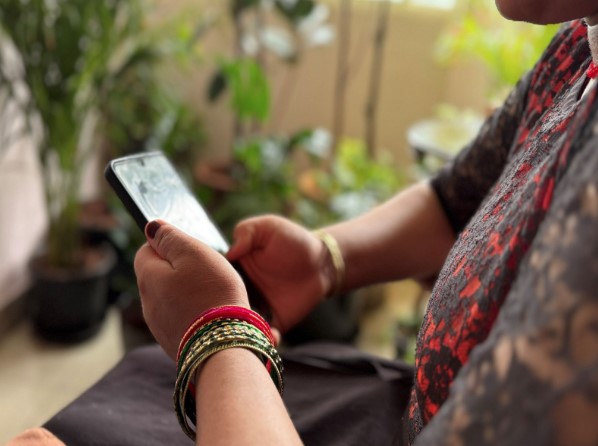Research exposes how women in India are being abused, shamed, and silenced online

New Delhi [India], November 17: Online spaces in India are becoming increasingly dangerous due to the escalation of technology-facilitated gender-based violence (TFGBV). In a new report, survivors describe being threatened, publicly shamed, and silenced, yet few find justice in a system that is slow to respond, fragmented, and underresourced. The research highlights the urgent need for survivor-centred reforms to end impunity and strengthen protection.
Experiencing Technology-Facilitated Gender-Based Violence in India: Survivor Narratives and Legal Responses, by Breakthrough and Equality Now, identifies how women and LGBTQI+ people are disproportionately targeted, with caste, tribe, class, and disability heightening their vulnerability. Digital platforms and everyday technologies are weaponised in a mounting crisis underpinned by discrimination, legal gaps, and tech companies’ failure to embed safety and act swiftly and effectively.
Survivors and experts – including lawyers, cybercrime police, academics, and civil society representatives – reveal how TFGBV occurs along a continuum of harm coexisting in online and physical spaces. However, social media’s vast reach, perpetrators’ anonymity, and the permanence and accessibility of digital content make online abuse distinctly damaging, intrusive, and enduring.
Amanda Manyame at Equality Now explains, “India’s justice system is not equipped to deal with the evolving nature of technology-facilitated gender-based violence. Legal and policy reform that is fit for purpose is urgently required to make digital spaces safer. Survivors need stronger laws, swifter justice, greater support, with tech companies taking real responsibility for harms happening on their platforms.”
How gender-based violence occurs online
Prevalent forms of online abuse include non-consensual sharing of intimate images, digital manipulation of photos, stalking, impersonation through fake accounts, doxing*, cyberbullying, and coordinated attacks.
TFGBV occurs across communities and geographical regions, with survivors suffering similar patterns of harm, duration, and impact, and the majority encountering multiple types of abuse. Some survivors reported knowing their abuser, others were harmed by strangers. Perpetrators frequently target individuals who are more vulnerable due to financial hardship, isolation, and limited family or social support. At the heart lies a deeply misogynistic culture, with orchestrated attacks on a woman’s character often central.
Abusers commonly upload images of victims on pornographic sites and chat platforms, circulated with degrading messages falsely claiming a victim is “available” for sex. One survivor recounted her phone number being shared publicly, triggering a daily barrage of two to three thousand calls.
A public prosecutor stated how TFGBV involving children usually starts via mobile phones and social media, with perpetrators grooming victims and building trust before luring them to isolated locations to commit abuse. These assaults are frequently recorded and used for blackmail. “They know how to create a web and trap them,” the prosecutor explained.
The prosecutor also detailed how gender discrimination extends to courtrooms, with defence lawyers routinely attempting to discredit girls, such as by cross-examining them about romantic relationships unrelated to cases.
Tech-facilitated abuse and stigma silence survivors
Survivors described ongoing fear and humiliation, career disruption, and lasting psychological harm, coupled with a sense that the justice system is not designed to protect them. One survivor recalled, “Filing a complaint felt like another violation. I had to relive everything, only to be told it was my fault.”
Victim-blaming, prejudice, a culture of disbelief, and family pressure discourage reporting, meaning TFGBV’s true extent is likely far greater than official figures indicate. Young women spoke of not wanting their parents to know about abuse, anticipating they’d be blamed, judged, and their freedoms restricted. LGBTQI+ individuals face added fears and threats of being outed and ostracised.
Many survivors withdraw from online spaces over safety concerns. Sometimes, even the police, unsure of how to respond, advised leaving social media. By silencing survivors online, TFGBV constrains their rights to free expression and curtails their ability to speak up, organise, and occupy public space.
Gaps in legal and policy protections against online abuse
The Information Technology Act, 2000 (IT Act) is India’s primary legal framework governing cybercrimes. However, it focuses mainly on offences against property and data rather than harm against persons. While the Act is gender-neutral, it is not gender-responsive, making it ill-equipped to address gendered aspects of technology-facilitated abuse. Another weakness is that it contains no provision to deal with online stalking, which disproportionately affects women and LGBTQI+ persons.
Section 66A of the IT Act previously criminalised a broad range of “offensive” online speech. In 2015, the Supreme Court struck down this provision as unconstitutional, citing its overreach, violation of free speech, and potential misuse. While protecting freedom of expression, this ruling has left significant safeguarding gaps.
Minimal understanding of TFGBV’s psychological and social impacts, and the failure to adopt survivor-centred approaches, leaves India’s justice system focused on punishment, while neglecting victim support and recovery.
Survivors who opt not to seek legal redress cite reasons such as procedural barriers and delays, police inaction, and inadequate training and resourcing of state actors. Other concerns include emotional fatigue, stigma, and legal action being too costly, time-consuming, and retraumatising.
Tech companies are slow to respond to abusive content
All survivors said their most pressing immediate need was for the violations to stop. As TFGBV can easily be ongoing, survivors prioritise safety and removing harmful content first, over pursuing criminal proceedings. The ‘right to be forgotten’ is part of the right to privacy and can be a key component of TFGBV cases. But India lacks a specific law to uphold this right, leaving decisions up to judges’ discretion.
India’s IT Act and Information Technology Rules stipulate that service providers must remove unlawful material within 24 to 36 hours of receiving a valid complaint or legal order. They are also required to maintain grievance mechanisms and cooperate with law enforcement.
However, survivors, caseworkers, and police routinely struggle to have harmful material removed. Lawyers and police describe working with platforms like Meta – which owns Facebook, Instagram, and WhatsApp – as opaque, resource-intensive, inconsistent, and often ineffective.
Cyberpolice face complex legal and procedural hurdles, with information requests frequently refused, forcing authorities to pursue lengthy legal routes. Even when legally required, platforms rarely act promptly to assist criminal cases. Multi-country jurisdictions complicate investigations further.
While some social media platforms have introduced content moderation measures and online safety policies, enforcement is usually automated and insensitive to local contexts. Tech companies lack linguistic and regional expertise, undermining moderation, especially when abuse isn’t in English.
Strengthening India’s legal response to tech-facilitated gender-based violence
To improve India’s response to TFGBV, the report calls for law enforcement and judicial officers to receive well-funded, survivor-centred, gender sensitivity training that builds digital literacy and understanding of the psychological and social impacts of online abuse.
Strengthening cyberlaws and applying them consistently, enhancing skills in handling digital evidence, and greater regulation of and coordination with technology companies are essential to ensure timely and effective investigations and content removal.
The report also offers how feminist strategic litigation can assist by setting progressive legal precedents in court rulings, fostering survivor-centred interpretations of cyberlaws, andstrengthening judicial approaches that uphold survivors’ rights and dignity while holding perpetrators accountable.
Manjusha Madhu at Breakthrough concludes, “Every survivor we spoke to shared stories of fear, frustration, and resilience. Their experiences show that the systems meant to protect them end up silencing them instead. Survivors want faster responses, compassionate engagement, and solutions that restore their safety and dignity, not more bureaucracy or blame.”
Notes to editors:
For media enquiries, contact Aakansha Saxena, Communications Officer, South Asia, asaxena@equalitynow.org or Tara Carey, Global Head of Media, Equality Now, Tcarey@equalitynow.org, T. +44 (0)7971556340 (available on WhatsApp and Signal)
* Doxing involves the online sharing of private information to publicly expose and shame the person targeted. This can include an address, phone number, and financial details.
Interviewees for this report were based in a variety of locations, including Delhi, Hyderabad, Kochi, Patna, and Trivandrum.
In this report, technology-facilitated gender-based violence (TFGBV) is characterised as an act of violence carried out by one or more individuals and either facilitated, intensified, or
exacerbated, partially or entirely, through information and communication technologies or digital media, targeting a person based on their gender and/or sexual identity or by imposing harmful gender norms.
About: Equality Now is a worldwide human rights organisation dedicated to securing the legal and systemic change needed to end discrimination against all women and girls. Since its inception in 1992, it has played a role in reforming 120 discriminatory laws globally, positively impacting the lives of hundreds of millions of women and girls, their communities, and nations, both now and for generations to come. For more details, go to www.equalitynow.org and LinkedIn Equality Now.
Available for expert comment: Amanda Manyame, Digital Rights Advisor at Equality Now.
About Breakthrough
Breakthrough is a women’s rights organisation working to end gender-based violence by transforming the cultural norms that perpetuate it. For more details, go to www.inbreakthrough.org/ and LinkedIn Breakthrough India.




